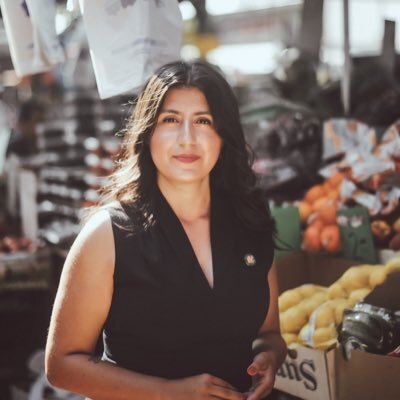Opinion: Close the ‘bad faith’ insurance loophole
/Jessica Ramos represents Corona, East Elmhurst and other Queens neighborhoods in the State Senate. File photo courtesy of Ramos
By Jessica Ramos
The unbelievable devastation from Hurricane Ida has pushed many of my constituents to the brink. Already struggling from the human toll of the COVID-19 pandemic and subsequent economic downturn, these mostly immigrant and working-class families are still trying to figure out how to rebuild their flooded homes.
Block after block in East Elmhurst was lined with damaged and destroyed possessions. It is a visceral, visual scene demonstrating how seriously the hurricane upended the lives of my community. And it is another chilling sign of the climate crisis that has increased the frequency, intensity and impact of these powerful storms.
After destructive events like this one, many rely on insurance to help pay for the cost of the repairs and get on with their lives.
Insurance is a lifeline — or at least it is supposed to be. But submitting a claim is a long and arduous process, with many loopholes designed to keep people from getting the payment to which they are entitled.
One might assume that New York law guarantees insurance companies quickly and fairly resolve claims of desperate, shell shocked New Yorkers who responsibly paid their premiums. In reality, our insurance laws are tilted in favor of powerful insurers who are, of course, incentivized to deny payments.
The reason this happens is because of a massive “bad faith” loophole the insurance industry has vigorously defended for years. This loophole deprives victims of insurance abuses of a meaningful way to hold insurers accountable and penalize them for denying or delaying claims in bad faith.
The rising frequency and intensity of storms has added new urgency to address this issue — which is why I have introduced legislation (A.7285/S.6813) to close this loophole by allowing policyholders to hold insurers accountable in court when they drag their feet or deny claims in bad faith.
This is a perennial issue that will become increasingly more common due to climate change. When Hurricane Sandy nearly demolished entire neighborhoods like Breezy Point, insurers fought tooth and nail to avoid paying out claims—with some families still waiting to be paid many years after the storm. These types of natural disasters will only worsen, and increasingly New Yorkers are going to be on the wrong side of fights with insurers just like after Sandy.
We also saw how the bad faith loophole allowed insurers to stiff small business and restaurant owners this past year. The unprecedented disruption caused by the COVID-19 pandemic left many local storefronts deprived of revenue and struggling to pay bills and stay afloat. Yet the insurance industry repeatedly denied business interruption payments, which led to massive job losses and more unnecessary closures.
It doesn’t have to be this way. Insurance laws are passed by each state, and 47 of them have robust bad faith protections and enforcement mechanisms for consumers and businesses.
Take California as an example. Both California and New York are seen as “progressive” states that protect consumers. California has stood up to the insurance industry, however, while New York has not. When horrific fires hit California, insurers by and large paid claims within reasonable time frames to make families whole again. That is because California law provides real consequences for insurance companies that don’t pay rightful claims to their customers fairly and promptly.
But it’s also true in other states. Florida—where hurricanes are the norm — has long empowered consumers to hold insurers accountable when they deny claims in bad faith.
The only reason the bad faith loophole exists here is because it drives profit for the insurance industry. It’s a technical, little known issue that doesn’t make headlines, but that deeply impacts the lives of everyday New Yorkers.
We’re used to leading the nation when it comes to protecting ordinary people from powerful special interests. Yet on this issue, nearly every state already has laws on the books to shield consumers from the bad faith of their own insurers.
We all like to see New York out front, but in this case, we’ll stand for joining the pack and ensuring our neighbors are protected.
Jessica Ramos represents Corona, East Elmhurst and other Queens neighborhoods in the State Senate.




